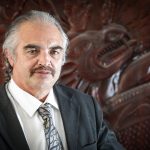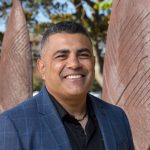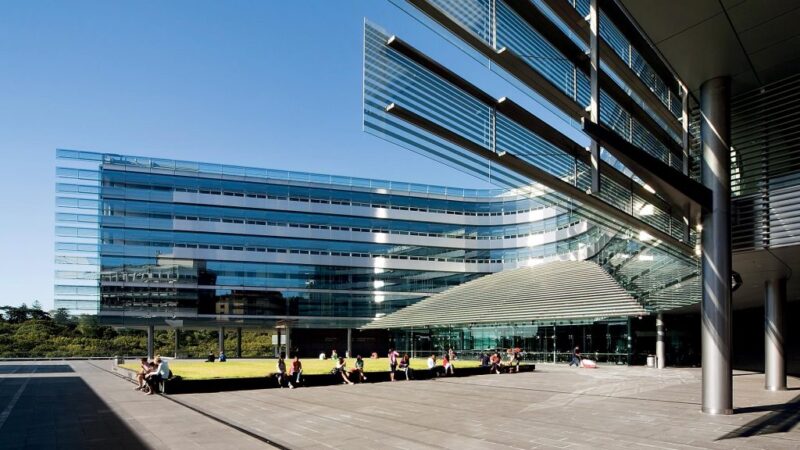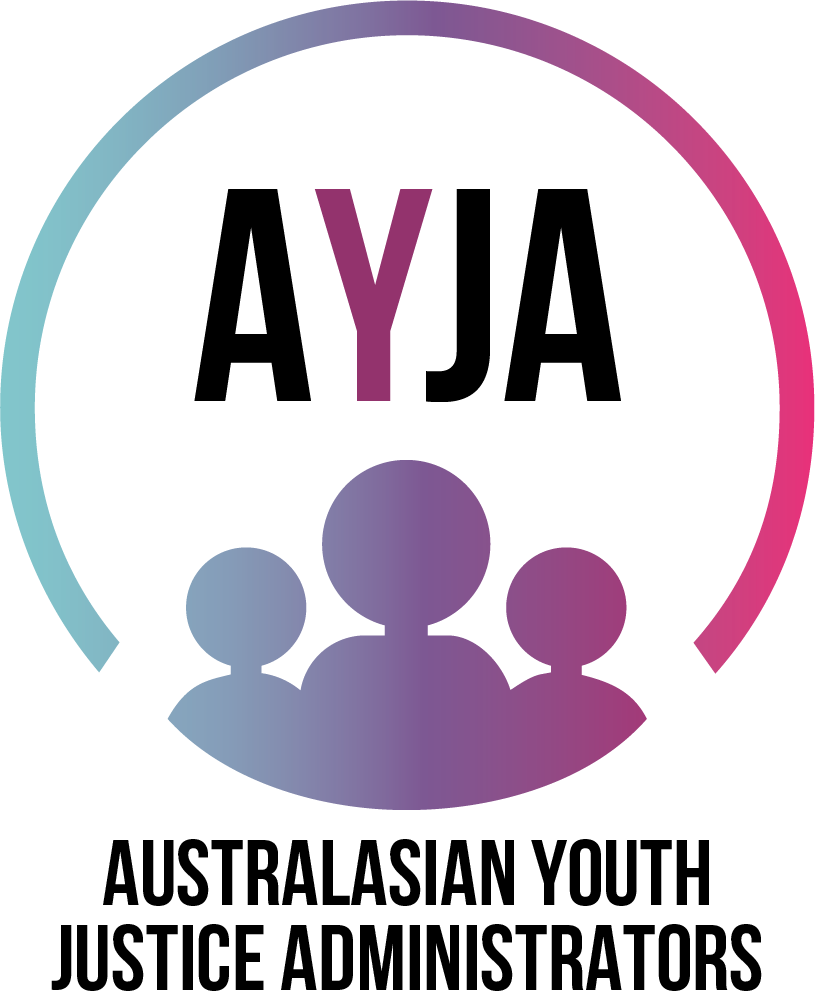AYJC 2021 Online – “Delivering Youth Justice for the Community, by the Community”

Acknowledgement – The corner design of the conference banner is from a piece of artwork entitled ‘Community’ that a young person created at the Kurlana Tapa Youth Justice Centre in 2015. Young people residing in Kurlana Tapa at the time gave AYJA permission for several art works to be used in AYJA documents and displayed on the AYJA website on the proviso that their names not be shown.
AYJC 2021 Online Presentation Gallery
From lived experience in the past to ambitious visions for the future, AYJC 2021 Online delivered incredible presentations to hundreds of people cross Australia and New Zealand.
AYJA and Oranga Tamariki – Ministry for Children proudly hosted the Australasian Youth Justice Conference 2021 Online in partnership with the University of Auckland delivering an incredible array of content to our largest-ever Conference audience.
The Conference was originally scheduled for 13-15 April but was pushed out to 16-18 November. After COVID and border closures necessitated both the postponement and a shift from an in-person conference in Auckland to an online event, there was some nervousness about how it might play out. What resulted exceeded all our expectations.
As with previous Conferences, a Conference Planning Committee was established, chaired by Phil Dinham, Director Youth Justice System Development for Oranga Tamariki and AYJA member for New Zealand, with the University of Auckland, Professor Ian Lambie, New South Wales, Western Australia, the Northern Territory all represented on the Committee.
The Essence of the Conference
The theme of the Conference was Delivering Youth Justice for the Community, by the Community, with two major streams: Weaving the Voices of Lived Experience with Best Evidence and Connecting Culture – Law to Lore.
People who have lived in communities most affected by crime, particularly indigenous communities with different traditions and culture, are often overlooked when youth crime solutions are sought so it was important to us that we provided a strong platform.
The community and the voices of communities were woven throughout the Conference Program, both in video and by the many community organisations who presented and attended.
Over 650 people registered as delegates and received exclusive access to almost 70 presentations, panel discussions, keynote speakers, reflection sessions, closing sessions, and an opening ceremony that highlighted Aotearoa New Zealand and included a welcome from Minister for Children, Hon Kelvin Davis.
Watching Anytime, Anywhere
Reduced participation costs and dynamic online content contributed to record participation. A popular feature of the online platform was the recording of all presentations and the ability for delegates to view them on demand.
Delegates could also share their log-ins, which allowed others in their team and/or organisation to watch also. Both options were taken up enthusiastically and many teams and organisations set up ‘viewing parties’ to watch presentations together.
Presentations are available on the AYJA YouTube Channel, alongside our Spotlight Series presentations.
The AYJC 2021 Online Final Report was completed by the University of Auckland. A summary of the report can be accessed here.
Keynote Speakers
Lisa Ward – 10 Things Every Youth Justice System Must Do
Justin Mohamed – Our Youth, Our Way
Judge John Walker – The New Zealand Youth Court – Influencing Change in the Wider System
Judge Louis Bidois – Rangatahi Courts
Panel Discussions
Kasey Tyler, Sally Kedge, Judge Tony Fitzgerald and Hayley Passmore
Panel 2 – Pae Whakarunga: Functional Family Therapy – Cross Generations
Pita Te Ngaru, Juliet Eritje, Jennifer Garton, Silvia Dash and Liesl Niania-Sharples
Concurrent Presentations
Session A
Stream 1.1 – Working Together to Improve the System
1) Encouraging Positive Improvement and Change (EPIC): A journey of best practice and workforce readiness – Kathryn Khademi
2) Youth Justice Demand Model V1: Implementing an evidence-based knowledge platform for decision-making – Carol Kitson and Isaac Walsh
3) A Strong and Trusted Relationship: Meeting the needs of rangatahi (young people) and Whānau (family) – Liz Marsden and Juliet Erihe
Stream 2.1 – Connecting Culture – Law to Lore
NOTE: Due to tech issues only presentation 3 is available. Please forward to 38.50 to watch presentation 3
1) Multisystemic Therapy: The Journey of an EBP to community implementation across Australia and New Zealand – Hayley Bruce, Rhiannon Outen and Haley Burton
2) Embedding Culture into Practice: Weaving an Aboriginal young person’s cultural story into supervision – Paul Davis
3) Heretaunga Ararau: From law to lore – Hone Fletcher and Lawrence Ereatara
Stream 3.1 – Diversity and Inclusion
NOTE: Due to tech issues all presentations in this session were pre-recorded
1) A Multi-systemic Approach to Diversity and Inclusion – Kylie Williams
2) Building Upon Understandings of Māori and Samoan Experiences of Youth Justice – Robert Webb
Co-presenters: Talia Wright-Bardohl and Suaali-Sauni Tamasailau
3) Te timatanga Hou: A New Beginning – Treyci Maynard
Session B
Stream 1.2 – Working Together to Improve the System
1) Surveillance, Profiling and Over-policing of First Nations Boys in Australia – Grace O’Brien
2) Oranga Rangatahi: Iwi partnerships and community expertise create bespoke approaches to prevention – Karl Severinsen
3) Poster Presentation Evaluating the Effectiveness of Intervention Programs for Adolescent Male Offenders in Western Australia – Kristie Dellar
Stream 2.2 – Health and Wellbeing
1) Collaborative Approach to COVID-19 Associated with Significant Reduction in Self-harm in Young People in Custody – Dr John Kasinathan and Dr Leigh Haysom
2) Navigate Your Health: Working collaboratively to change young people’s story through better health – Dr Pauline Zardo
3) Occupational Therapy in Youth Justice and a Sensory Modulation Framework for the Youth Custodial Environment – Luke Francis
Stream 3.2 – Diversity and Inclusion
1) Te Kohine Maia: Prevention programme for wahine Māori (Māori women) who have offended – Joe Graham
2) Understanding Aiga (family) in Youth Justice: Reflections from the south side – Naomi Fuamutu
3) Developing a Service Model to Respond to Volatile and Violent Behaviour in Youth Custody – Andrea Davidson
Session C
Stream 1.3 – Working Together to Improve the System
1) At-risk and Radicalised Youth Offenders: Countering violent extremism in an evolving Australian context – Steve Barracosa
2) Te Tuinga Whānau and Oranga Tamariki: Weaving the community together – Tommy Wilson
3) Collaborating to Ensure Good Communication Practice in Family Group Conferences (FGCs) – Alayne Mckee
Stream 2.3 – Health and Wellbeing
1) Health and Welfare Outcomes for Young People Following Release from Incarceration in Queensland, Australia – Dr Rohan Borschmann
2) Utilising Intensive Wraparound Service to Work Differently with Tamariki (children) At-risk of Future Offending Behaviour – Emily Lodge and Aaron Matchitt
3) Responsive Case Management: Knife Crime Program Pilot – Dr Gemma Russell and Sally Norton
Stream 3.3 – Weaving the Voices of Lived Experience with Best Practice
1) My Journey My Life (Yinnar) – Shaylee Matthews
2) Co-producing Knowledge with Justice-involved Young People: A critical examination – Shelley Turner
3) My Family, Our Decisions, Our Way – Justin Power
Session D
Stream 1.4 – Working Together to Improve the System
1) Poster Presentation Overrepresentation of Young Indigenous Offenders: Differences in criminogenic risk/needs and Implications for practice – Kristie Dellar
2) Postcards from Practice: Learnings from the Name. Narrate. Navigate program – Tamara Blakemore
3) Multisectoral Data Linkage to Understand Health and Mortality Outcomes for Justice-involved Young People – Lindsay Pearce
4) Whakatakapokai: Connecting the past to the present and future – Ngaire Lyall, Megan Hart and Aneta Mihinui
Stream 2.4 – Health and Wellbeing
1) A Lessons Learned Approach to FASD Awareness in WA Youth Justice Services – Melanie O’Connell and Melissa Zampatti
2) You Can’t Afford to Miss This – Mary Woodward
3) Tailoring Interactions in Response to Young People’s Sensory and Communication Needs – Larissa Ashton and Melissa Saliba and Luke Francis
4) Non-communicable Disease, Multimorbidity, and Mortality Among Justice-involved Young People: A data linkage study – Lucas Calais Ferreira
Stream 3.4 – Building a Robust and Resilient Youth Justice Workforce
1) Co-responder: Collectively responding to high-risk youth offenders – Jodie Elder
2) Relational Security: Balancing care and control in youth custody – Dr Sanne Ostermeijer
3) Enhancing Support to Find a New Path in Kurlana Tapa – Louisa Hackett and Joanne O’Connor
4) Communication Assistants in Court: ‘What does that even mean?’ – Sally Kedge
Session E
Stream 1.5 – Working Together to Improve the System
1) A Principled Approach to Children and Youth Who Commit Serious Offences – Dr Nessa Lynch
2) Reducing the Prison Pipeline: A trauma-focused approach – Veronica Tone Graham and Ian Lambie
Stream 2.5 – Health and Wellbeing
1) Youth Justice Pathways: Wellbeing indicators and outcomes for young people involved with youth justice – Sarah Richardson
2) Towards Culturally Intelligent Multi-Disciplinary Assessment in Custodial Settings – Melissa Saliba and Ellie Minney
3) Staff Safety vs Therapeutic Interventions: How to safely juggle the competing priorities – Tina Brendas and Alison Grace
Stream 3.5 – Diversity and Inclusion
1) Enabling Rangatahi (young people) and Whānau (family) to Shape How Participation Happens in Youth Justice Spaces – Tracy Karanui-Golf
2) Kaupapa Māori Evaluation as a Powerful Tool for Supporting the Transformation of Youth Justice Settings – Kataraina Pipi and Ataru Hamilton
Session F
Stream 1.6 – Working Together to Improve the System
1) Educational Experiences of Crossover Children in the Youth Justice and Child Protection Systems – Susan Baidawi
2) Poster Presentation Validation of the YLS/CMI on an Australian Youth Offending Population – Kristie Dellar
3) Re-thinking Bail: Reducing the remand of Aboriginal and Torres Strait Islander children and young people – Keisha Hopgood
Stream 2.6 – Connecting to Culture – Law to Lore
1) Mana Taiohi: Youth development principles for Aotearoa (New Zealand) – Jane Zintl and Anaru Te Rangi
2) He Kanohi Kitea: A face seen in places where angels fear to tread – Mere Ruru
3) Te Oranga Pai – Kristine Byers
1) Criminal Identity Development in Practice – Timothy Warton
2) KIND: Early intervention addressing adolescent family violence and adolescent dating violence – Kate Melvin
Ceremonies and Reflections
Performances
Performance 1 – Hear Me See Me: How did I get here?
Poetry created by young people at Te Puna Wai O Tūhinapō Youth Justice Residence, set to animations by rangatahi at M.A.T.C.H (Māoriland “Ahi” Tech Creative Hub) in Ōtaki and the Kāpiti Coast. The process of creating the poems was guided by local poet Ben Brown: you can learn more about his work with Te Puna Wai by checking out the story Expressing Themselves in the Posters and On Demand Videos gallery here in the Conference portal.
Hear Me See Me is an Oranga Tamariki-supported initiative that enables young people to share challenges they’ve faced growing up in Aotearoa New Zealand and what did or could have helped them. Visit www.hearmeseeme.nz for more information.
Performance 2 – NAIDOC Week Youth Justice NSW Always Was, Always Will Be
Hear from a diverse group of youth justice staff as they express what celebrating NAIDOC week means to them.
Video courtesy of Youth Justice NSW
Performance 3 – C.H.A.R.T – Changing Habits and Reaching Targets
This video explores delivering CHART out on country outside of the classroom setting and in a way that young people feel supported.
Video courtesy of Youth Justice NSW – Wilcannia, NSW
AYJC 2021 Online Conference Program
AYJC 2021 Online Conference Handbook
In collaboration with Oranga Tamariki – Ministry for Children (OT), AYJA partnered with the University of Auckland (UOA) to deliver the 4th Australasian Youth Justice Conference: Delivering Youth Justice for the Community, by the Community. While this was planned to be the first AYJA youth justice conference to be hosted in New Zealand, due to COVID restrictions, it ended up being the first AYJA conference delivered on a virtual platform.
AYJA and UOA established a Conference Program Committee to progress all conference tasks. The Committee comprised of AYJA, OT and UOA representatives and was chaired by AYJA. Participating AYJA members were from New Zealand, Western Australia, the Northern Territory and New South Wales alongside.
The AYJA Secretariat provided secretariat services to the Committee and was responsible for joint project management alongside UOA and OT.
Conference Theme
The theme for AYJC 2021 Online is Delivering Youth Justice for the Community, by the Community, with two major streams Weaving the Voices of Lived Experience with Best Evidence and Connecting Culture – Law to Lore. People who have lived in communities most affected by crime, particularly Indigenous communities with different traditions and culture, are often overlooked when youth crime solutions are sought. The Conference will provide a platform to hear from those voices.
In addition, the other five streams for AYJC 2021 Online are:
- Diversity and Inclusion – includes the voice of the child/family/community, gender identity, minority groups, age of criminal responsibility etc.
- Health and Wellbeing -includes mental health, neurodiversity, disability, impairments, therapeutic intervention/innovation etc.
- Working Together to Improve the System – includes collaboration, partnerships, role of oversight bodies, working outside of core youth justice, earlier prevention and intervention etc.
- Building a Robust and Resilient Youth Justice Workforce – includes staff, management, training, challenges, recruitment, retention etc.
- Intergenerational Experiences of Family Violence – includes physical/mental/sexual violence, abuse, neglect, young people as both victim and perpetrator etc.
Keynote Speakers

Judge John Walker – NZ
Principal Youth Court Judge New Zealand
The New Zealand Youth Court – Influencing Change in the Wider System
His Honour Judge John Walker was appointed to the role of Principal Youth Court Judge for New Zealand in 2016. Born in Belfast, Ireland, Judge Walker graduated with an LLB from Victoria University of Wellington. He was admitted to the bar in 1976 and practised in Palmerston North and then in Wellington as a partner in Macalister Mazengarb and then as a barrister at Harbour Chambers until appointment to the District Court Bench in 1994.
Judge Walker has been instrumental in the development of court assisted interventions for alcohol and other drug dependency, including the establishment of the Youth Drug Court in Christchurch and the Adult Drug Courts in Auckland. During his time as Resident Judge for the Porirua District Court, Judge Walker encouraged better engagement between the Court and the community, mainstreaming the community justice centre model and developing a solution focused judging approach. In recent years, Judge Walker has been leading the development of District Court responses to Family Violence. A focus for Judge Walker is the implementation of Young Adult List pilot, a court for 18-25 year olds taking Youth Court
approaches into the Adult Court, in Porirua, and implementing those lists in other courts in
New Zealand.
Judge Walker is engaged in the education of judges through the Institute of Judicial Studies on a number of subjects, including solution focused judging, Family Violence, and judicial leadership.

Lisa Ward – VIC
Youth Justice Expert
10 Things Every Youth Justice System Must Do
Lisa Ward is a trusted voice in Victoria’s justice system, with over thirty-five years’ experience in youth justice, child protection and adult corrections.
Since managing Victoria’s youth justice system some twenty years ago, she has worked across private, public and community sectors, with a key focus on forging stronger connections between justice and human services. She has been an independent advisor to major government reforms, providing strategic advice on legislative, policy and program design.
Lisa is passionate about bringing the evidence to bear and finding practical, achievable ways of reducing young people’s contact with the criminal justice system. Her experience has reinforced the importance of continuous learning about the lived experience of communities that are disproportionately impacted.
Lisa has served several statutory appointments including to the Child Death Review Committee, Parole Board and Sentencing Advisory Council of Victoria.

Judge Louis Bidois – NZ
National Rangatahi Court Judge for Rangatahi Courts New Zealand
Rangatahi Courts
Judge Louis Bidois has iwi (tribal) affiliations with Ngāti Rangiwewehi and Ngararanui.
Judge Bidois is currently, the National Rangatahi Court Liaison Judge for Rangatahi Courts, Ngā Kōti Rangatahi. With 19-years experience on the bench he is a passionate advocate for the marae-based youth judicial system.
One of the most rewarding parts of Judge Bidois’ job is taking non-Māori judges on to marae (place of standing/belonging) for at least four nights and seeing how their lives change by engaging kanohi ki te kanohi (face-to-face) with iwi (tribes).
Outside of the courts Judge Bidois presides over, he reverts to his roots as ringawera (helper) for his iwi (tribes) and whanau (family). Judge Bidois enjoys watching his mokopuna (grandchild) play rugby league, follows the NZ Warriors NRL team even though their performance is “Soul destroying at times”, and spending time with whānau.

Justin Mohamed – VIC
Commissioner for Aboriginal Children and Young People
Our Youth, Our Way
Justin Mohamed is a Gooreng Gooreng man from Bundaberg in Queensland who currently is the Commissioner for Aboriginal Children and Young People of Victoria.
Justin has worked with Victorian Aboriginal communities for 20 years before moving to Canberra to take on national positions as Chairperson of the National Aboriginal Community Controlled Health Organisation (NACCHO) and Chief Executive Officer of Reconciliation Australia. Prior to his move to Canberra, Justin held positions based in the Shepparton region as the Inaugural Director of the Academy of Sport, Health and Education (ASHE), CEO and later Chairperson of Rumbalara Aboriginal Cooperative Ltd.
He chaired the Victorian Aboriginal Community Controlled Health Organisation (VACCHO) and chaired the Hume – Regional Aboriginal Justice Advisory Council (RAJAC). Justin has held positions on multiple community, state and national working groups, committees and boards and continues to be a Director of Supply Nation, Co-Chair Cricket Australia’s Aboriginal and Torres Strait Islander Advisory Committee and Board Member of Kaiela Institute.

Isaiah Sines – NSW
Youth Engagement Officer Just Reinvest NSW
Mounty Yarns: Lived Experiences
Isaiah Sines is a proud Dhungatti man from Kempsey and also has ties to the Wiradjuri people. After moving around a lot early in his life he is now settled in Mt Druitt. Isaiah is a Just Reinvest NSW Youth Engagement Officer in Mt Druitt and Youth Ambassador for the organisation. Isaiah has experienced a lot in his life and wants to advocate for other Koori kids who are going through what he went through and hopefully prevent the future generations from being affected by the same systems he grew up in.
Isaiah is a Project lead on a youth-led project called Mounty Yarns- the lived experiences of Aboriginal young people in Mt Druitt; he instigated and leads a community OzTag program; shares his story with young men in youth justice centres; and does advocacy around community-led solutions, changing policing practices and raising the age of criminal responsibility.
Conference Details
AYJC 2021 Online
16-18 November 2021
ONLINE
Important Dates
Call for Abstracts Open – 24 February 2021
Call for Abstracts Close – 23 April 2021 EXTENDED 28 May 2021
Notifications of Acceptance – 23 July 2021
Registrations Open – 1 July 2021
Presentation Registrations Due – 15 October 2021
Registrations
Full registration
NZD$195.00 inc. GST)
- All conference sessions
- Interactive hubs
- Access to presenter notes and presentation materials
- Access to recorded presentations for 30 days
- Virtual Swag Bag
- Conference Program
NZD$100.00 (NZD inc. GST)
- All conference sessions
- Interactive hubs
- Access to presenter notes and presentation materials
- Access to recorded presentations for 30 days
- Virtual Swag Bag
- Conference Program
Photo: The University of Auckland – Business School (venue when the AYJC 2021 was planned as a traditional face-to-face conference)


